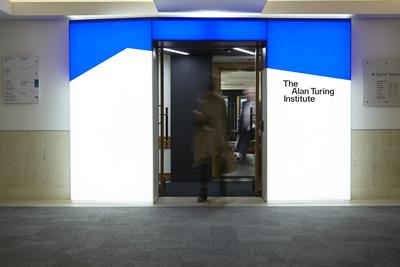Southampton to join The Alan Turing Institute

The University of Southampton is set to join The Alan Turing Institute, the UK’s prestigious national institute for data science.
Subject to signing a partnership agreement, it is anticipated that Southampton and the University of Bristol will be working with the Institute and its university partners to develop collaborative programmes of research from summer 2018. The Institute is named in honour of Alan Turing, whose pioneering work in theoretical and applied mathematics, engineering and computing are considered to be the key disciplines comprising the emerging field of data science.
All new universities joining the Turing network have been admitted based on the excellence of their research and its alignment with the Institute’s research interests, their ability to bring new expertise and opportunities which add to the core strengths of the Institute and its existing partners, and their willingness to contribute financially to the Institute.
Professor Mark Spearing, Vice-President (Research and Enterprise), University of Southampton, commented: “We are a pioneering world-leader in computer, data and web science and becoming a university partner of The Alan Turing Institute is an important step as we seek to further expand our capabilities in harmony with other world-leaders in these fields. This partnership comes at a time when the digital world faces many challenges and it is only through collaborative efforts like this that we’ll succeed in addressing the world’s societal and scientific needs.”
Professor Bashir Al-Hashimi, Dean of Physical Sciences and Engineering at the University added: “The University of Southampton’s ambitions in Data Science and Data-centric Engineering are closely aligned with the strategic aims of the Alan Turing Institute. Our expertise here is leading the way in data collection, integration and conversion into knowledge and evidence that informs business, industrial and governmental strategy. I welcome our membership of the Alan Turing Institute as a defining moment for Southampton, reflecting our continued key contribution to Data Science and its impact worldwide.”
The addition of Southampton and Bristol marks the end of the first phase of expansion for the Turing, and the focus over the coming months will be to assimilate the new universities into the Institute’s community and to generate ambitious collaborative research programmes.
Alan Wilson, CEO of The Alan Turing Institute, said: “Together, the Turing’s university network represents a powerful coalition of research excellence in data science and artificial intelligence in the UK. It is with real pleasure that we welcome Bristol and Southampton into the Turing network, adding their substantial expertise to the Institute’s already formidable network of academic talent.”
Southampton and Bristol join a growing network of university partners in the Alan Turing Institute: since November 2017 six universities (Birmingham, Exeter, Leeds, Manchester, Newcastle and Queen Mary University of London) have been announced as new partners, joining Cambridge, Edinburgh, Oxford, Warwick and UCL who were selected as founder members when the Institute was created in 2015.
Researchers from the 13 universities will work together alongside the Institute’s industry, government and third sector partners to spearhead cutting-edge research and apply this research to real-world problems, with the goal to create lasting effects for science, society and the world we live in.
Professor Tom Melham, Professor of Computer Science at the University of Oxford (one of the five founding universities of The Alan Turing Institute) and Institute Trustee commented: “The expansion of the Turing’s university network and the associated potential for collaboration will enable us to undertake even more ambitious and impactful research in data science and AI. As a founder member of the Institute, we are delighted to welcome Bristol and Southampton and look forward to working with all the university partners of the Turing to bring UK talent and expertise in these new technologies to the fore.”